
As good as gold: How the dollar has ruled the global economy no matter the crisis at home.
The dollar is king. This year the strength of the US currency has humbled the yen, the euro and the pound sterling. US interest rates

The dollar is king. This year the strength of the US currency has humbled the yen, the euro and the pound sterling. US interest rates
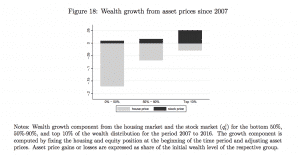
Innovative analysis of new sources throws new light on the phenomenon of massive and increasing inequality in modern America.

How the disadvantage of black men accounts for the entire difference in social mobility between black and white americans. If you read just one thing on American society this year, make it these reports!
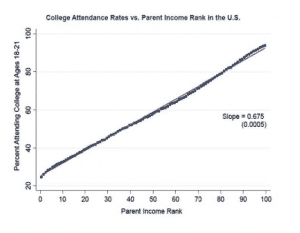
The stark simplicity of educational disadvantage.

There’s only one game in town. Local labour markets across the US are highly concentrated in favor of employers.
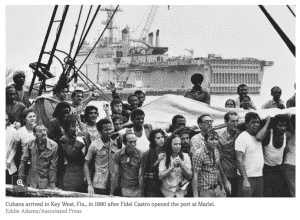
How controversy swirled and still swirls around the arrival of 125,000 Cubans in Miami in 1980.
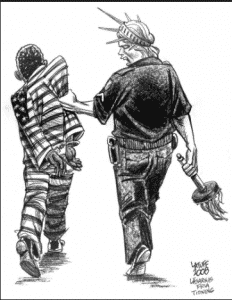
23 million Americans live with the stigma of incarceration or felony conviction. It is an engine of social destruction.

Fascinating discussion in pages of FT of basic questions of distribution and growth and their implications for economic policy.
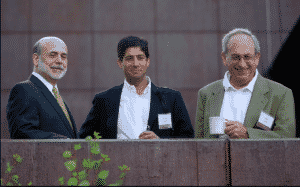
Brilliant piece by Sam Bell on the nightmare prospect of Kevin Warsh as Fed chair and the class politics of macroeconomic analysis.

How will global warming will hit the poorest counties of the United States?

The financial crisis had an unusually severe impact on lowest income groups in the US.
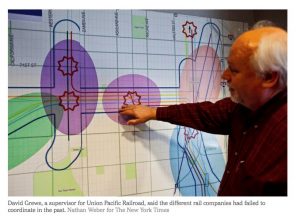
America’s Infrastructure problems come together at one Chicago intersection.
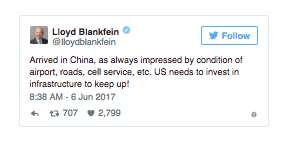
On Goldman, US infrastructure and the China-comparison.

The mystery of why construction costs so much in the US and why it matters for progressive politics.

As the Fed plans its next move, back channels to the bond markets are buzzing. What are some of those channels and what is the talk?

USDA food insecurity figures may severely understate the scale of the problem of hunger in 21s-century America, especially in rural areas.
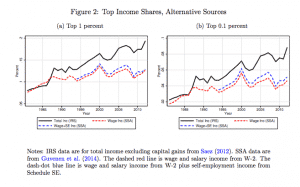
New insights into inequality dynamics and the importance of “S-corporations” from Guvenen and Kaplan.

How the Czech republic and Chihuahua state are linked in the strategies of transnational suppliers. Comparing NAFTA and EU expansion as geoeconomic strategies in the post Cold War period.

Recent work by Sean Starrs and how it helps us to understand US-centric hierarchies of ownership and control in global capitalism.

The political economy of West Permian, the center of the fracking revolution and the site of EXXON’s latest strategic play.

How Larry Summers in the post-Vietnam moment sketched out space for economic policy thinking between Kissinger and Martin Feldstein and how he filled it with the vocabulary of the late Cold War.

Uncertainty rules. Can the protectionist turn be for real? Does anyone know? The FT, the Washington Post, the White House anyone?
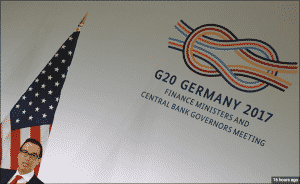
Why nixing TPP and TTIP does matter. How it fits in America’s political economy. And is there neoliberalism beyond free trade? Continuing the debate.
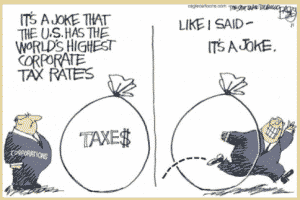
Fascinating report on which US corporations actually pay taxes and which don’t. Differential tax rates as a starting point for a mapping of political and economic power.

Abstract from Trump. Focus on the question of how the Republicans broke with globalization orthodoxy. Does that help us situate the current moment? Should it make us even more worried?
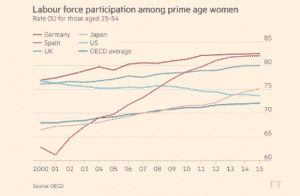
Discouraged male workers are a hot political issue in America. But what about women? The truly exceptional thing about the US is the retreat of prime age women from the labour market and the utter lack of policy to address this basic issue of modern society.
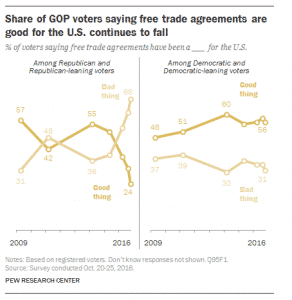
Trump’s mercantilism may be a personal belief rooted in the 1980s, but for the Republicans it marks a historic break.

How the Fed, hedge funds, banks, journalists and economists struggle to dominate the interpretation of the monetary system.

Revealing data from market-driven research company highlights the polarization of the US wealth distribution.
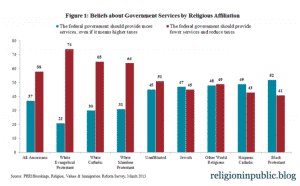
New data pinpoint the hard core of anti-government politics in US amongst white evangelicals who are high-income and Tea Party identified.

Why a pluralist account of globalization is necessary to map the crisis of 2008.
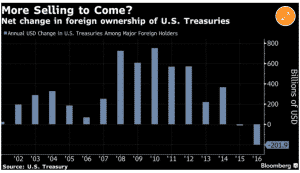
Asian sell off? Dollar crash? Alternatives to the dollar? Or a future of more or less dysfunctional entanglement?
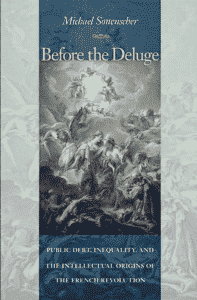
If the state underpins the global dollar, how should we characterize its political economy? Bond vigilantes or managed money?
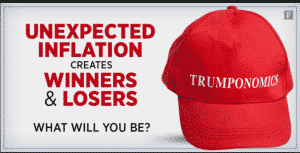
What if Trump’s economic policy morphs into an unregulated, all-around expansionism, back to the go go years, Goldman on populist speed?

Four ways in which the dollar’s global role could generate tension with the crude economic nationalism of the Trump administration.
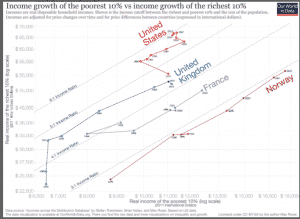
More comparisons with Europe reveal the stark polarization of US income distribution, but also raise questions about the reformist politics that animate these data-collection efforts.
© 2025 Adam Tooze. All Rights Reserved. Privacy policy. Design by Kate Marsh.